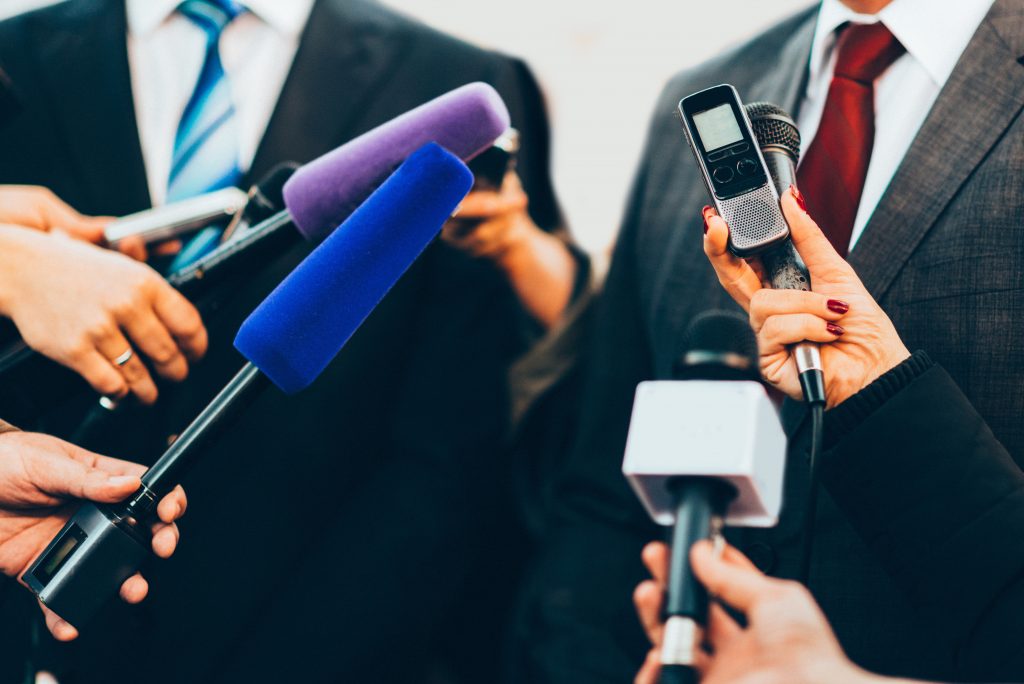As you may have noticed, President Trump and the media are at war. And, as a result, Americans have been getting an up-close look at the dysfunctional but co-dependent relationship between journalists and politicians. And it’s scary.
These two tribes need each other. We feed each other. We tend to like each other as individuals. We understand each other. But that doesn’t mean we trust each other. We don’t.
We’re not talking about different kinds of dogs and different varieties of cats. These are dogs and cats.
Almost 20 years ago, when I was a baby journalist, I returned to my alma mater and became a mid-career student at the John F. Kennedy School of Government at Harvard.
Most of my classmates were former or aspiring elected officials, government workers, or political appointees. But some — who made up my tribe — were current or former journalists.
Oh, the glorious arguments we had, these two opposing cohorts — in class and over pints of beers in Harvard Square. We saw the world in fundamentally different ways. We had different interests. We pursued different agendas.
Ideally, politicians have, as their highest calling, serving the public good. Journalists worship at the altar of seeking the truth — especially if it’s inconvenient or unpopular.
Sometimes those two goals collide.
There even seemed to be a difference in what we wanted out of life. The pols wanted power and influence. The journos wanted a voice and the chance to shape the debate.
But the two groups did one thing in common, unfortunately: Neither of us spent much time thinking about what the public wants from us. That’s right, the lowly, oft-forgotten public for which we’re both supposed to be working.
I know what the public wants, because I listen good when they scream it at me. When I write columns, I get emails from readers. When I host radio shows, folks call in. When I give speeches, people in the audience ask questions or make comments.
The American people are saying loud and clear what they want from elected officials and the media, and I hear them. In advance of the November midterm elections, and with an eye toward 2020 — which will be dominated by President Trump’s re-election bid, and the efforts of Democrats to thwart it — this is what they’re saying.
As for elected officials, the public wants to see them work together for the common good. We got a taste of that recently when Sens. Jeff Flake of Arizona and Christopher Coons of Connecticut stepped out of Senate Judiciary Committee hearings to confirm Brett Kavanaugh and struck a compromise that resulted in an 11th-hour FBI investigation into sexual misconduct allegations against the Supreme Court nominee. That investigation moved the process forward.
The public also wants to see more elected officials who are honest and authentic and willing to break from party loyalty and do the right thing or the thing that will serve the greatest number of people.
Witness the outpouring of love and appreciation for the late Sen. John McCain of Arizona, the Republican maverick who went his own way regardless of party. Too many of today’s elected officials — at the local, state, and federal level — mistakenly think they work for the party, when they really work for the people. McCain never made that mistake.
Then there’s the media, from whom the public wants fairness, transparency, and restraint. Reporters have to hold back on their personal opinions, and columnists who are paid for their opinions need to stop playing political consultant, where they try to elect some politicians and defeat others.
The public wants journalists to cover the fray, but also have the good sense not to enter it. It understands that media figures are human beings who are going to have their own views, but they expect them to stay out of the arena and keep their biases in check. They want us to inform the country, not try to steer it in one direction or another.
And they want us to be honest, and admit when we get things wrong — which can be often.
The public also wants journalists and the media to treat both parties with the same level of fairness and scrutiny. It doesn’t expect the Fourth Estate to go easy on any one party, but it does expect the hall monitors to be evenhanded and equally tough on both of them.
As it stands, many Americans have concluded that the mainstream media is merely a surrogate for the Democratic Party. That perception helps no one — least of all the media.
More journalists should listen to the public, and so should more elected officials. We just might learn something about this great country, and the people who keep it that way.
Ruben Navarrette is a contributing editor to Angelus and a syndicated columnist with The Washington Post Writers Group and a columnist for the Daily Beast. He is a radio host, a frequent guest analyst on cable news, and member of the USA Today Board of Contributors and host of the podcast “Navarrette Nation.” Among his books are “A Darker Shade of Crimson: Odyssey of a Harvard Chicano.”
SPECIAL OFFER! 44 issues of Angelus for just $9.95! Get the finest in Catholic journalism with first-rate analysis of the events and trends shaping the Church and the world, plus the practical advice from the world’s best spiritual writers on prayer and Catholic living, along with great features about Catholic life in Los Angeles. Subscribe now!
